
You can define craft beer in many ways — size, ownership, adjuncts — but here at CBB, we tend to define a craft brewery by the way it is owned. Oddly enough, brewing bold beer is only a part of that definition. To us, being a craft brewery means putting employees first and investing in people as much as profit margins. Being a craft brewery means supporting your local community, creating jobs, advocating charity work and being a stand-out corporate citizen.
But perhaps most important of all, being a craft brewery means embracing the big task of environmental stewardship. In fact, craft breweries around the nation are leading the charge for eco-friendly business practices, from water conservation and clean energy generation to recycling and reuse programs. To honor and educate the industry, we’ve called on some of those green-focused craft breweries (as well as some of our manufacturing friends) to share their secrets for running an eco-friendly brewery. We thank all of them for their support (especially the Craft Brew Alliance, which sent us three entries!). Because without a happy and healthy Mother Nature, none of us would get to enjoy good beer for very long.
Optimize your processes

Shaun O’Sullivan, co-founder,
21st Amendment Brewery (San Leandro, Calif.)
Our process and what we consume when producing our beer affects the sustainability of our operation and our overall footprint on our planet. Great care goes into what we use and what we spill. With our new San Leandro brewery and the quality equipment that we have purchased, this translates into being more efficient and getting the most out of what we put into our process. In the brewhouse, this is anything from grain handling and milling to the vessel automation sequencing and developed analytics that allow us to track data and optimize the system, increasing efficiencies and consuming less. Downstream with clean-in-place procedures, we recycle and reuse our process fluids. With California’s current drought conditions, having these systems in place allows us to consume less water. Packaging our beer in cans has a net gain over glass when taking into account that 80 percent of all aluminum cans are recycled. We use less energy in handling because the weight of cans allows us to haul more units per pallet than our glass counterparts. As a company, we consume; it’s the nature of our industry, but we are more and more efficient at using and spilling less with the overarching goal of being more sustainable.
Three Green Tips
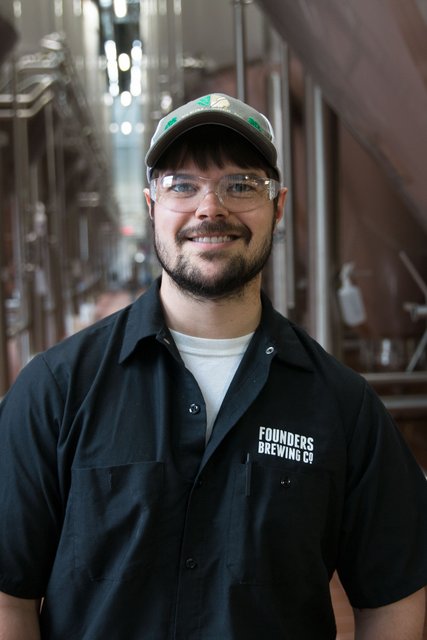
Brett Kosmicki, cellar manager and head of Strike Force Green,
Founders Brewing Co. (Grand Rapids, Mich.)
Environmental sustainability has certainly been a topic receiving more discussion and even debate within the craft beer community over the last few years. We’d all like to save money, and in doing so, why not help out Mother Earth? High-quality, consistent raw materials are increasingly dependent on well-functioning ecosystems, and while not trying to incite a political discourse, we can all appreciate the role a healthy natural environment inherently plays. Though becoming “eco-friendly” can seem as daunting as creating the next hit IPA style, a few, well-focused efforts can add real savings to both your wallet and your planet.
Tip 1: Reducing electrical consumption needn’t be as involved or carry as much upfront cost as rooftop solar panel installation. Simply begin swapping old, incandescent light bulbs with highly efficient LEDs or compact fluorescents, and see your kWh consumption reduced significantly. Additionally, install motion sensors if light switches are inconveniently placed. Better yet, increase the amount of natural lighting in your brewery and taproom with larger, more frequent windows, skylights or install “light tubes” that focus sunlight!
Tip 2: Install a vapor condenser on your wort kettle stack to capture the steam created from the boil. Simply collect/direct the steam around a heat exchanger circulating ambient temperature water. This is an effective and efficient transfer of heat and could potentially supply all the hot water your plant requires. Founders cut natural gas usage by over 30 percent by doing this. Boiler stack economizers are a similar concept with less capital investment and control requirements.
Tip 3: Use conductivity measurements to control CIP solution strengths. Optimizing chemical concentrations can potentially reduce rinse water volumes required to neutralize effluent pH. pH strips or a meter can also be used to help confirm when rinsing has been successful. Additionally, “burst” rinsing fermenters and bbts, instead of a continuous rinse, can reduce water usage during CIP.
Partnering for a greener future
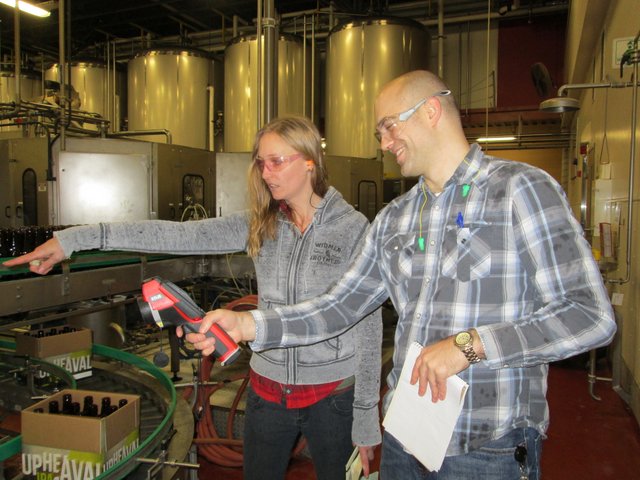
Julia Person, sustainability manager,
Widmer Brothers Brewery (Portland, Ore.)
Because of its intense water use and energy demands, craft brewing can have a significant impact on the environment. Greenhouse gas emissions and water scarcity will be two of the most important issues facing the craft brewing industry in the years to come. For Widmer Brothers, lessening that impact is both our responsibility and a business imperative — each gallon of water or therm of natural gas saved will go straight to our bottom line in real dollar savings.
In our pursuit to make beers in a more sustainable manner, we have partnered with some exceptional organizations. Alongside non-profit partner Oregon Wild, Widmer Brothers is a founding member of the newly launched Oregon Brewshed Alliance. Great beer begins with clean water, and the OBA recognizes the synergy between protecting the watersheds that make our delicious brews possible. The coalition of brewery members is working to advocate for protection of those resources, educating the beer drinking community and supporting brewers around leadership in conservation. Our other exceptional resource in Oregon are the forward-thinking breweries that we collaborate and share best practices with to help us become more responsible as an industry.
Variable frequency compressors

Greg Jakobek, marketing specialist,
Ingersoll Rand (Davidson, N.C.)
Sustainable production of craft beer is a commitment that should be looked at from a holistic perspective. This includes not only the raw materials used in the creation of beer, such as hops, but also in the power that supplies equipment in the process. Sometimes, the application of compressed air can be overlooked in the production process since it typically does not directly impact the outcome of the beer. However, as craft breweries grow and continue to expand their operations, the compressed air applied in keg washing, bottling, canning and moving product from one station to another becomes increasingly important because of how often it is used for these purposes.
In the world of air compressors, there is a type of rotary screw compressor that has variable speed technology. This is ideal for those who have variable demand. The Variable Frequency Drive, or VFD, controls the speed of the motor, allowing it to speed up and slow down based on the brewer’s needs. When using lots of air, the VFD controls the motor to run faster, producing more air to meet system demand. Likewise, when using less air, the VFD controls the motor to slow down as it reaches the target pressure. The benefit of running the motor slower is that it requires less power, optimizing the compressor and reducing energy consumption. Every kilowatt saved not only keeps money in the brewer’s pocket, but it’s also a step in the right direction for becoming more sustainable and socially responsible.
VFD control also minimizes the number of starts on the motor, which increases the motor life and prevents “short cycling” of the compressor, thereby instituting long-term efficiency. To top it off, many states currently offer rebates for businesses buying variable speed units, which accelerates the return on investment. In fact, there are a number of websites available that can help determine if a rebate is currently available in the state you reside, such as www.dsireusa.org.
Future supply challenges
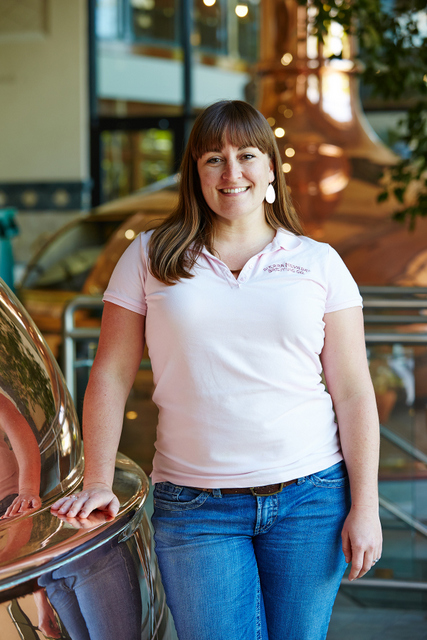
Cheri Chastain, sustainability manager,
Sierra Nevada Brewing Co. (Chico, Calif.)
Our industry does face challenges around certain parts of our supply chain, especially looking out into the future. Sierra Nevada uses more whole-cone hops than most any other brewer and there are not enough organic hops or barley to supply our demand, let alone the whole craft brewing industry. To address challenges, there needs to be a brewery-specific effort around what we can control, combined with a larger industry-wide set of actions.
On the brewery-specific side, Sierra Nevada has an active water conservation task force looking at ways to use water more efficiently, and we’re powered in part by more than 10,000 individual solar panels that create more than 1.5 megawatts of AC electricity.
As an industry, we are working through the Brewers Association, which has a technical committee and a sustainability subcommittee. There are 11 breweries on the sustainability subcommittee that I am co-chairing, and we have all come together to better engage the industry on sustainability practices. Staying true to the “share-and-share alike” ethic, other brewing companies can learn about industry best practices through how-to manuals on topics like energy efficiency, water use and solid waste management that are available for free online. The group is also working on a green building manual, a wastewater-specific manual and an industry benchmarking study.
There are so many great answers, we couldn’t possibly fit them all on one page. Click “Next” to continue reading and to see Brock Wagner’s shirt.

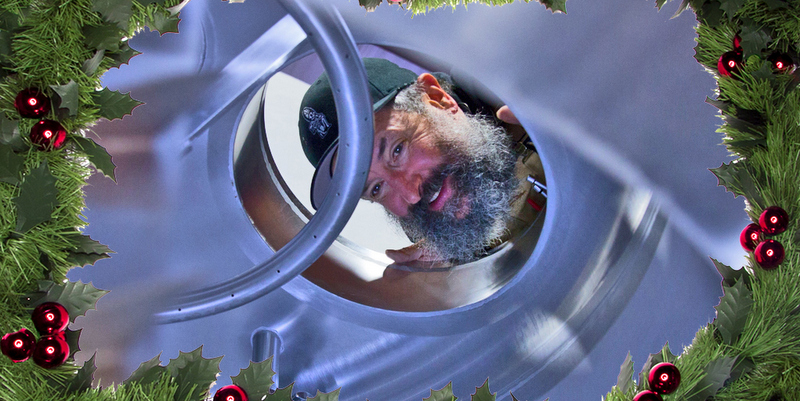
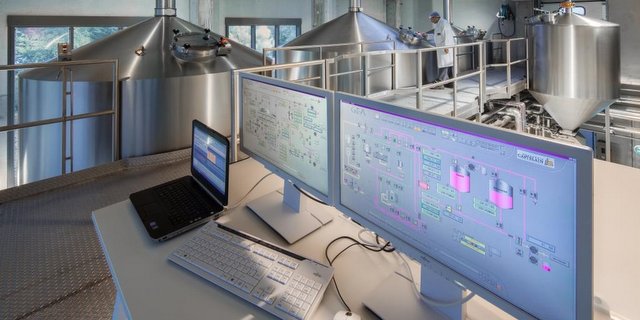
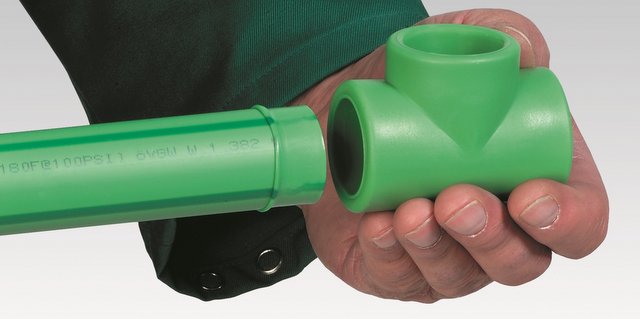
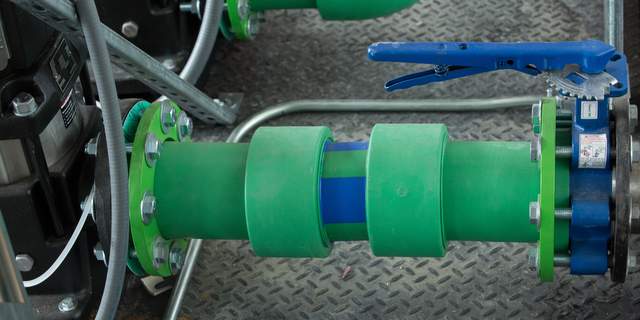
Want your brewery to be eco-friendly? Check out these tips from the pros! http://t.co/NwXKAWXK6c @craftbrewingbiz
Eco-friendly brewing tips from top craft brewing professionals #sustainability #craftbeer http://t.co/jJkd9v5zLr via @craftbrewingbiz
RT @VictoryBeer: Eco-friendly brewing tips from top craft brewers – http://t.co/g3LuGCpeC0 @CraftBrewingBiz #TasteVictory ^MB http://t.co/4…
RT @VictoryBeer: Eco-friendly brewing tips from top craft brewers – http://t.co/g3LuGCpeC0 @CraftBrewingBiz #TasteVictory ^MB http://t.co/4…
Eco-friendly brewing tips from top craft brewing professionals. Great insight from @craftbrewingbiz http://t.co/sdIFsNfSuG
RT @IR_So_Gulf: Craft brew pros and #IR’s Greg Jakobek share eco-friendly brewing tips http://t.co/i2bnxSNZ15 via @craftbrewingbiz
Piping tips for Brewers: http://t.co/SCWgYVEdXz
Craft brew pros and #IR’s Greg Jakobek share eco-friendly brewing tips http://t.co/i2bnxSNZ15 via @craftbrewingbiz
RT @VictoryBeer: Eco-friendly brewing tips from top craft brewers – http://t.co/g3LuGCpeC0 @CraftBrewingBiz #TasteVictory ^MB http://t.co/4…
RT @VictoryBeer: Eco-friendly brewing tips from top craft brewers – http://t.co/g3LuGCpeC0 @CraftBrewingBiz #TasteVictory ^MB http://t.co/4…
RT @VictoryBeer: Eco-friendly brewing tips from top craft brewers – http://t.co/g3LuGCpeC0 @CraftBrewingBiz #TasteVictory ^MB http://t.co/4…
@VictoryBeer @CraftBrewingBiz Great location for a photo, lol. http://t.co/tDiNjp1rqx
RT @VictoryBeer: Eco-friendly brewing tips from top craft brewers – http://t.co/g3LuGCpeC0 @CraftBrewingBiz #TasteVictory ^MB http://t.co/4…
RT @VictoryBeer: Eco-friendly brewing tips from top craft brewers – http://t.co/g3LuGCpeC0 @CraftBrewingBiz #TasteVictory ^MB http://t.co/4…
RT @VictoryBeer: Eco-friendly brewing tips from top craft brewers – http://t.co/g3LuGCpeC0 @CraftBrewingBiz #TasteVictory ^MB http://t.co/4…
RT @VictoryBeer: Eco-friendly brewing tips from top craft brewers – http://t.co/g3LuGCpeC0 @CraftBrewingBiz #TasteVictory ^MB http://t.co/4…
RT @VictoryBeer: Eco-friendly brewing tips from top craft brewers – http://t.co/g3LuGCpeC0 @CraftBrewingBiz #TasteVictory ^MB http://t.co/4…
RT @VictoryBeer: Eco-friendly brewing tips from top craft brewers – http://t.co/g3LuGCpeC0 @CraftBrewingBiz #TasteVictory ^MB http://t.co/4…
RT @VictoryBeer: Eco-friendly brewing tips from top craft brewers – http://t.co/g3LuGCpeC0 @CraftBrewingBiz #TasteVictory ^MB http://t.co/4…
RT @VictoryBeer: Eco-friendly brewing tips from top craft brewers – http://t.co/g3LuGCpeC0 @CraftBrewingBiz #TasteVictory ^MB http://t.co/4…
Eco-friendly brewing tips from top craft brewers – http://t.co/g3LuGCpeC0 @CraftBrewingBiz #TasteVictory ^MB http://t.co/4ksOWzQ0vA
RT @VictoryBeer: Eco-friendly brewing tips from top craft brewing professionals – http://t.co/g3LuGCpeC0 @CraftBrewingBiz #victory^MB http:…
RT @CraftBrewingBiz: Eco-friendly brewing tips from top craft brewing professionals. Thanks a ton @VictoryBeer http://t.co/LeI8psrKkk http:…
RT @HughesBrews: Eco-friendly brewing tips from top craft brewing professionals http://t.co/FNju8JjQv2 via @craftbrewingbiz #craftbeer
RT @HughesBrews: Eco-friendly brewing tips from top craft brewing professionals http://t.co/FNju8JjQv2 via @craftbrewingbiz #craftbeer
RT @HughesBrews: Eco-friendly brewing tips from top craft brewing professionals http://t.co/FNju8JjQv2 via @craftbrewingbiz #craftbeer
Interesting read. https://t.co/MHaofy20RR
Craft breweries finding ways to be tasty with less waste-y http://t.co/8L8HmLFXj4 Go Craft Brew Alliance, @WidmerBrothers @Redhook_Brewery
Eco-friendly brewing tips from top craft brewing professionals http://t.co/FNju8JjQv2 via @craftbrewingbiz #craftbeer
RT @Ale_Asylum: Brewmaster Dean contributed to a feature blog on eco-friendly brewing for @CraftBrewingBiz. Cheers to sustainability! http:…
RT @Ale_Asylum: Brewmaster Dean contributed to a feature blog on eco-friendly brewing for @CraftBrewingBiz. Cheers to sustainability! http:…
RT @Ale_Asylum: Brewmaster Dean contributed to a feature blog on eco-friendly brewing for @CraftBrewingBiz. Cheers to sustainability! http:…
Brewmaster Dean contributed to a feature blog on eco-friendly brewing for @CraftBrewingBiz. Cheers to sustainability! http://t.co/YaZAFAq0Aj
RT @VictoryBeer: Eco-friendly brewing tips from top craft brewing professionals – http://t.co/g3LuGCpeC0 @CraftBrewingBiz #victory^MB http:…
RT @VictoryBeer: Eco-friendly brewing tips from top craft brewing professionals – http://t.co/g3LuGCpeC0 @CraftBrewingBiz #victory^MB http:…
RT @VictoryBeer: Eco-friendly brewing tips from top craft brewing professionals – http://t.co/g3LuGCpeC0 @CraftBrewingBiz #victory^MB http:…
Eco-friendly brewing tips from top craft brewing professionals – http://t.co/g3LuGCpeC0 @CraftBrewingBiz #victory^MB http://t.co/W3uxnEzRpd
Including the estimable @shaunosullivan >> Eco-friendly brewing tips from top craft brewing professionals http://t.co/ngnYaCkhbV
Serge Lubomudrov liked this on Facebook.
Eco-friendly brewing tips from top #craftbrewing professionals: http://t.co/4BNj7iqhop
Jerry Elliott liked this on Facebook.
Tyler Wood liked this on Facebook.
Marilee Rutherford liked this on Facebook.
David Lengvarsky liked this on Facebook.
Jared Read liked this on Facebook.